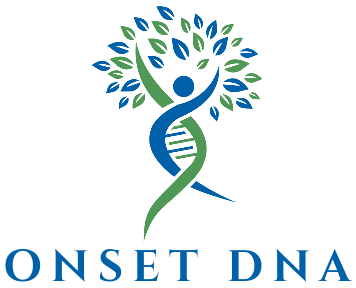
What does a DNA test say? A DNA test reveals ancestry, health threats, genetic features, and biological connections. Analyzing DNA sequence helps to determine family relationships, inherited conditions, and the body’s reaction to medicines. Samples of saliva, blood, or cheek swabs are used for testing and delivering results. In the pursuit of knowledge or information related to healthcare, DNA testing serves a central function in uncovering genetics.
There are various types of DNA tests, each serving different purposes. Autosomal DNA tests analyze genes inherited from both parents and are useful for ancestry and relationships. Mitochondrial DNA (mtDNA) testing traces maternal lineage through generations. Y-chromosome DNA testing identifies paternal ancestry, helping track male lineage. Health-related DNA tests provide insights into genetic risks and personalized wellness.
Autosomal DNA testing analyzes chromosomes from both parents. It is helpful in tracing ancestry over several generations. This test is widely used to locate relatives and estimate ethnicity. It can be used for both males and females, providing general genealogical information.
Mitochondrial DNA testing focuses on maternal lineage. It traces ancestry through the mother’s side, identifying distant relatives. mtDNA is passed down from mother to child unchanged over generations. It is a valuable tool for deep ancestral research.
Y-chromosome DNA testing is specific to males and traces paternal lineage. It helps determine direct male ancestry and surname connections. This test is useful for genetic genealogy and historical lineage studies. Females cannot take this test but can trace paternal ancestry through male relatives.
Health DNA testing identifies genetic predispositions to diseases and conditions. It provides insights into inherited risks for conditions like heart disease and cancer. Some tests also reveal nutrition and fitness-related traits. These results help in making informed health and lifestyle choices.
DNA testing is not just about ancestry. DNA testing can reveal ethnic heritage, far-off cousins, and family ties. Genetic health risk factors and inherited characteristics are also included in the findings. DNA tests are also able to check medication response with pharmacogenomics.

DNA testing aids in tracing ancestry and ethnic origin in various regions. DNA is compared to various populations in the world. Estimates of ethnicity offer information regarding heritage and patterns of migration. Outcomes may emphasize ancestral connections centuries old. Some utilize DNA testing to regain lost cultural roots. Knowledge about ethnic makeup helps connect more profoundly to heritage.
DNA testing identifies biological relatives through shared genetic markers. It helps people find unknown family members, such as distant cousins. Some use it to confirm suspected family relationships. Genealogy enthusiasts rely on DNA databases for family tree research. Adoption cases also benefit from DNA testing for reconnections. This process strengthens family ties and historical lineage exploration.
DNA testing identifies predispositions to multiple genetic diseases. DNA testing identifies risks of diseases such as Alzheimer’s disease, diabetes, and cardiovascular diseases. Early knowledge allows individuals to pursue preventive health actions. Genetic risk does not necessarily imply the development of the disease. Health outcomes are also determined by lifestyle and environmental variables. Consulting a healthcare provider assists in interpreting the results correctly.
Carrier tests identify whether people carry genetic mutations for inherited disorders. This is important for disorders such as cystic fibrosis and sickle cell anaemia. Carriers might not be symptomatic but can pass genes to children. Carrier status is important in family planning. Genetic counselling gives information about risks and what to do next. Couples can discuss options for avoiding passing disorders to children.
DNA testing identifies inherited characteristics beyond physical characteristics. It is possible to predict eye colour, hair texture, and complexion. Certain tests examine taste, muscle structure, and sleep. Behavioural traits and food sensitivities can also be identified. These findings enable people to learn about their genetic profile. Traits testing provides a fun, personalized element to DNA testing.

Pharmacogenomic DNA testing identifies how people will react to medication. It checks for genetic differences in drug absorption and response. This allows doctors to prescribe treatments that are both safer and more effective. Individualized medicine by DNA testing delivers better healthcare outcomes. It reduces drug side effects and increases treatment accuracy. Such testing is often used for maintaining chronic diseases optimally.
DNA testing involves collecting a saliva, blood, or cheek swab sample. The sample is then analyzed in a lab to extract genetic information. Advanced technology sequences DNA to compare genetic markers. Results are delivered online or through printed reports within weeks.
DNA testing has its limitations, even though it is accurate. It will not reveal exact ancestral locations, only approximations. Genetic health reports show risks but not that the disease will necessarily develop. Certain tests do not test for all ethnic groups, producing incomplete results. And there are privacy issues with DNA data storage and utilization.
Selecting a DNA test is based on what you are looking for. For ancestry, autosomal DNA tests are optimal. For the maternal line, mtDNA testing is ideal. Health-oriented tests are optimal for genetic risk screening. Privacy policies and accuracy should be considered prior to choosing a provider.
What does DNA testing tell you? It reveals ancestry, genetic traits, health risks, and family connections. DNA testing provides valuable insights into one’s heritage and well-being. It is a powerful tool for understanding genetics and personal history. With proper use, it helps individuals make informed life decisions.
A DNA test can detect ancestry, genetic health risks, carrier status, and familial connections.
It cannot predict exact ancestry locations, guarantee disease outcomes, or determine non-genetic factors affecting health.
Results include ethnicity breakdown, genetic predispositions, and family connections.
Your DNA test will provide insights into ancestry, relatives, health risks, and traits.
It can uncover ancestry, medical predispositions, and inherited characteristics.
They reveal ethnicity, inherited traits, potential health risks, and biological relationships.

Empowering Families with Knowledge and Clarity through Convenient, Confidential, Compassionate Mobile DNA Testing.

